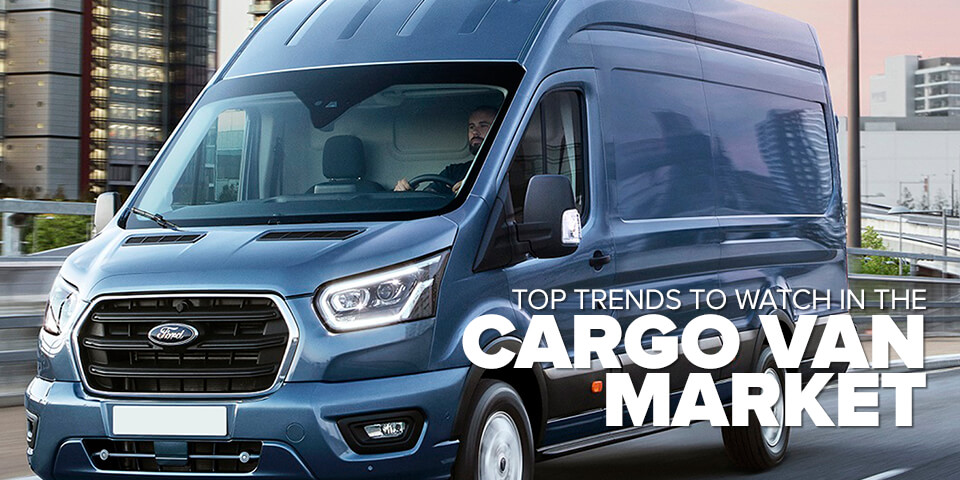
Top Trends to Watch in the Cargo Van Market
Cargo vans have been a staple of the expedited trucking industry for decades. They offer a much lower cost of entry for aspiring owner-operators than straight trucks and tractors. And with newer high-capacity Euro-style vans?like the Mercedes Sprinter, Ford Transit, and RAM Promaster?today's vans can haul larger, more profitable loads than previous generation vans while staying below 10,000-lbs gross vehicle weight rating (GVWR) to avoid regulatory constraints.
But when freight is slow, that?s where things get dicey for van owners.
And, right now, after a robust 2018, freight demand is down across all trucking sectors, including expediting, due to continued uncertainty in the U.S.-China trade war and poor weather that has disrupted supply chains.
So, if you?re an expedite cargo van owner, you?re likely feeling the brunt of the slowdown.
How long will these market headwinds last? What trends in vans and logistics should you keep your eye on in the coming months and years?
EO recently spoke with Lawrence McCord, CEO at On Time Media (the publisher of ExpeditersOnline.com) and founder of Frayt (an on-demand delivery platform) to get his outlook. Here are some highlights from our conversation.
On the current state of freight...
How does the current slowdown in freight compare to the downturn in 2016?the same, worse, or better?
?The downturn is worse than 2016, but I think it?s going to be short-lived,? says McCord. ?When the carriers shed equipment, this creates more equilibrium between capacity and demand. And that is already happening.?
McCord continues, ?Expedite freight is not going away anytime soon. It goes up, it goes down. That?s not going to change.?
How changes in business models and consumer habits are disrupting logistics?and increasing demand for cargo vans...
Manufacturers are changing the way they sell and deliver product to their customers. And that?s wreaking havoc on the logistics industry, says McCord.
The traditional model has been that a manufacturer ships products to their distribution centers. And then the products get delivered in bulk to a retail network of local stores where the end customer would shop for and purchase the product.
?But now, when the product gets from the manufacturer to the distribution center, they?re having cargo vans pick up the stuff and take it directly to the consumer or to a business,? says McCord. ?They completely bypass the retailer.?
And since more and more businesses and individuals are expecting instant delivery, this trend will create a higher demand for cargo vans, says McCord.
?Delivery windows are getting so short right now,? says McCord. ?It used to be second-day. Then it went to next-day. And then it went to same-day. Now, with on-demand delivery, that window can be as short as 60 minutes. The cargo van is well-positioned to win in this market.?
On the ?Amazon Effect?...
In early May, Amazon announced an expansion of its Delivery Service Partner program in the US with a new incentive for current Amazon employees to start a small business owning and operating a package delivery company using cargo vans. The new incentive will fund the startup costs, up to $10,000, as well as the equivalent of three months of the former employee?s last gross salary.
How will Amazon?s expansion into transportation impact the industry?
?Amazon isn't only a threat now to retailers, they're also a threat to motor carriers and the owner-operators in that supply chain,? says McCord.
McCord says that some retailers are responding to the ?Amazon Effect? with their own logistics innovations. Take Best Buy, for example, which has recently changed their retail footprint to allow stores to serve as mini warehouses for online customers. This way, Best Buy can give their online customers a choice to pick up the product at the store or have it shipped to them.
?The expectation of on-demand delivery is a growing trend. And who's making those deliveries? Cargo vans,? says McCord.
